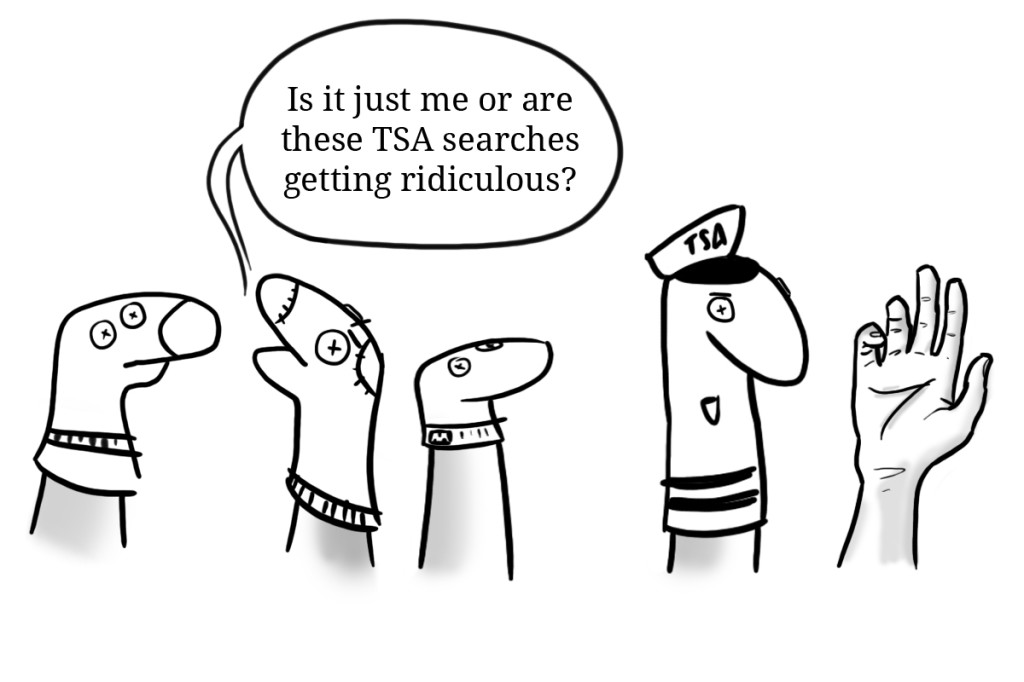Since Sept. 11, 2001, in a response to potential radical terrorists, airport security has entered a heightened state of paranoia. The latest craze: the Transportation Security Administration’s new highly detailed and humiliating full-body scans.
If you were planning to fly to a snowy destination during winter break, you may want to reconsider. Now, instead of walking through security with minimal embarrassment, travelers must go through full-body scanners, and those who refuse will be subject to uncomfortably thorough pat-downs.
Airports across the country – including the Oakland airport and San Francisco International – are using this new technology. The highly-detailed body scans capture images of the passenger in the nude by use of technology that can see through clothing, with no blurring of the areas usually covered even by underwear.
But in order to agree to this newfound “security,” we must also be willing to forgo many of our civil liberties. Both the body scanners and the invasive pat-downs go against our constitutionally guaranteed right to privacy.
A Nov. 22 article from RawStory.com, via “Business Insider,” reported that ABC News producer Carolyn Durand opted for the pat-down instead of the body scan and claimed that the TSA agent felt inside of her underwear. Although one could argue that these are the inappropriate actions of a single TSA agent, the fact remains that when the individuals that make up a system can’t be trusted, the entire system becomes suspect.
The TSA has promised us that images of our naked bodies will not be saved or ever made public. But, as proven by the 35,000 leaked images put on the internet by Gizmodo, the U.S. Marshals in a Florida Federal Courthouse saved the images on their scanner.
But all the personal privacy issues aside, the technology itself presents a health risk. In a letter to Dr. John P. Holden, assistant to the president for science and technology, a group of scientists and faculty from the University of California, San Francisco point out that the TSA’s claim that the scanners present no radiation risk is, at best, a poorly researched one.
The scientists argued that although the radiation received is no worse than the claimed “two minutes at altitude,” the radiation received at altitude is spread throughout the entire body, while the scanner focuses the majority of its rays entirely on the skin and therefore is significantly more concentrated. It’s currently not known whether that kind of concentration increases the risk of cancer – but that’s the problem. The research hasn’t been done, and the machines can’t truly be considered safe until that happens.
The TSA is an appalling reactionary system that acts only once a possible terrorist-related incident has occurred. All airports need to discontinue the use of this invasive technology and find better ways to protect citizens.
In 1759, Benjamin Franklin made a timeless statement: “They that can give up essential liberty to obtain a little temporary safety deserve neither liberty nor safety.”
And we seem all too ready to give up our civil liberties for a little piece of mind.
After the terrorist attacks that brought down the World Trade Center, paranoid airport-security measures increased, and while this has lessened over time, the TSA continues to create new ways to protect us from potential terrorists that often to do more harm to travelers than it does safeguard them.
Contact the Inquirer editorial board at [email protected]





































































